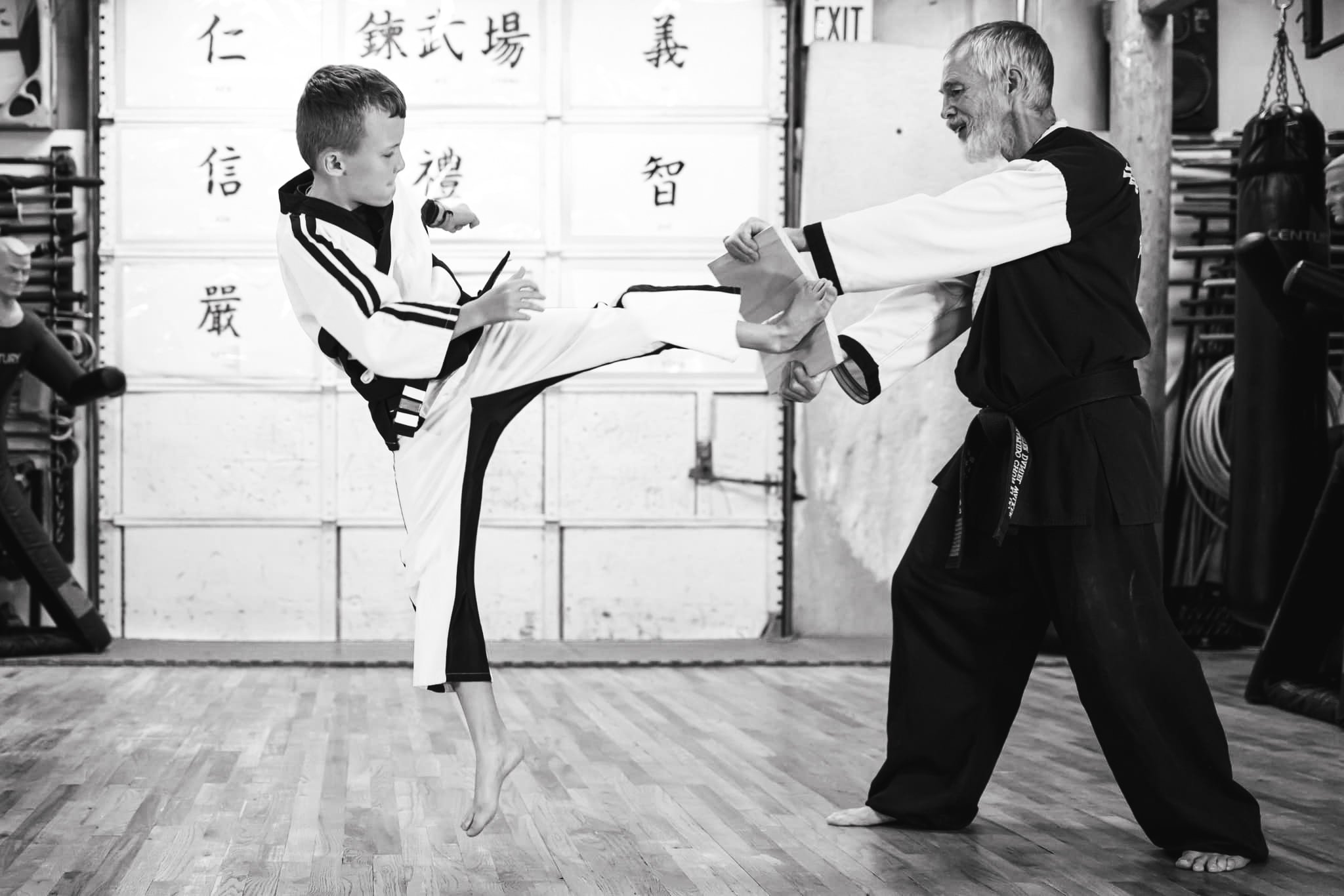
express the power
within you
learn to focus energy and use it constructively
▼

We teach kids self discipline
to bring out the best
in themselves and others
"My daughter Sabra has really come out of her shell since starting tae kwon do! She has gained confidence and strength!
We are so glad she has joined MAIS and she loves it!
Misty is absolutely amazing!"
— Tamela —
tae kwon do classes
for kids
TINY TIGERS
Ages 3&4
LITTLE DRAGONS
Ages 5-12

GRAIN OF SAND BY GRAIN OF SAND
A TALL MOUNTAIN is MADE
— GRANDMASTER KANG —
tae kwon do
Kick high, aim higher
Tae kwon do is a Korean martial art known for its emphasis on high, fast kicks and dynamic, powerful movements.
The name tae kwon do can be translated as "the way of the foot and fist.” It is both a martial art and a sport, and it has become one of the most widely practiced martial arts globally.
Tae kwon do has also been an Olympic sport since the 2000 Summer Olympics, contributing to its global popularity. The sport aspect involves Olympic-style sparring with specific rules and scoring criteria.
key features of tae kwon do
kicking techniques
A variety of powerful kicks, including front kicks, roundhouse kicks, side kicks, and spinning kicks, executed with speed and precision.
HAND techniques
Hand techniques such as punches, blocks, and open-handed strikes. The integration of hand and foot techniques provides students with a well-rounded skill set.
Forms (Poomsae)
Predetermined patterns of movements that simulate various aspects of defense and attack against multiple opponents. Forms are performed to demonstrate the understanding of tae kwon do techniques and principles.
Sparring (Kyorugi)
The application of tae kwon do techniques in controlled, competitive settings. Matches involve scoring points by landing kicks and punches on designated target areas, usually the torso and head.
BELT SYSTEM
The colored belt system signifies rank and level of proficiency. Students progress through different belt levels as they acquire skills, knowledge, and experience.
DISCIPLINE & ETIQUETTE
Tae kwon do places a strong emphasis on discipline, respect, and etiquette. Students adhere to a code of conduct and teachers emphasize character development.
matthew, 6
“I like to do the forms. I like to break the board. I have learned respect, patience, and kindness. I love taekwondo!”
Why should my child take tae kwon do?
Students age 3 to 12 who take tae kwon do classes at MAIS will develop self defense techniques and build physical skills as well as learn character building, self discipline, positive thinking, personal growth, goal setting and achieving, the value of respect, and how to have a growth mindset.
They learn how to control and channel their energy and understand how to use it for right rather than might.
STUDENT CREED
1
I will develop myself in a positive manner and avoid anything that would reduce my mental growth or my physical health.
2
I will develop self-discipline in order to bring out the best in myself and others.
3
I will use what I learn in class constructively and defensively, to help myself and my fellow man, and never to be abusive or offensive.
What about kids with special needs?
Martial arts is incredibly transformative for students with special needs. In addition to the benefits mentioned above, they can increase resilience, distress tolerance, enjoy social interaction with kids with similar values, and see improvement with sensory processing, memory, the ability to focus, and coordinate movement.
MAIS also offers specialized experience to accommodate this particular group.
Millhorn Kyosahnim earned a graduate degree in clinical social work and specialized in childhood trauma during her tenure as a child and family therapist.
She also has extensive experience working directly with special needs children and teens as an individual, couples, and family counselor.

Humble in victory
proud in defeat

• Respect • Courtesy • Goodness • Trustworthiness • Loyalty • Humility • Courage • Patience • Integrity • Perseverance • Self-control • Indomitable Spirit •
〰️
• Respect • Courtesy • Goodness • Trustworthiness • Loyalty • Humility • Courage • Patience • Integrity • Perseverance • Self-control • Indomitable Spirit • 〰️
TAE KWON DO
AAU - Amateur Athletic Union
& moo duk kwan kukkiwon
WE are affiliated with the
Tae kwon do Moo Duk Kwan Kukkiwon
Tae kwon do moo duk kwan refers to the specific style of tae kwon do promoted by Hwang Ki and Grandmaster Kang.
This respected and credible association signifies that MAIS instructors are both legitimate and competent, and allows them to provide the best martial arts instruction and techniques.
why it matters
what does moo duk kwan mean?
Moo Duk Kwan translates to Institute of Martial Virtue
moo = martial art, duk = high character & virtue, kwan = training hall
Moo duk kwan was founded by Hwang Ki in 1945 and is one of the original kwans (martial arts schools) that emerged in Korea after the end of the Japanese occupation of Korea.
Hwang Ki incorporated elements from various Korean martial arts, Chinese martial arts, and influences from his studies in other countries to create moo duk kwan, a style of tae kwon do.
The Kukkiwon is recognized worldwide as the only official rank issuing body. The Kukkiwon is the organization that oversees and standardizes the practice of tae kwon do worldwide, including the certification of black belts.
The Kukkiwon also certifies tae kwon do schools, ensuring that all instructors at the dojang have teaching credentials issued from the Kukkiwon. Only students taught by credentialed instructors can be issued rank in tae kwon do.
A black belt certificate from the Kukkiwon is comparable to a Harvard degree in academia. The legitimacy of our particular dojang is evidenced by our credentials and our honored ability to issue Kukkiwon certificates and rank.
what is the Kukkiwon?












